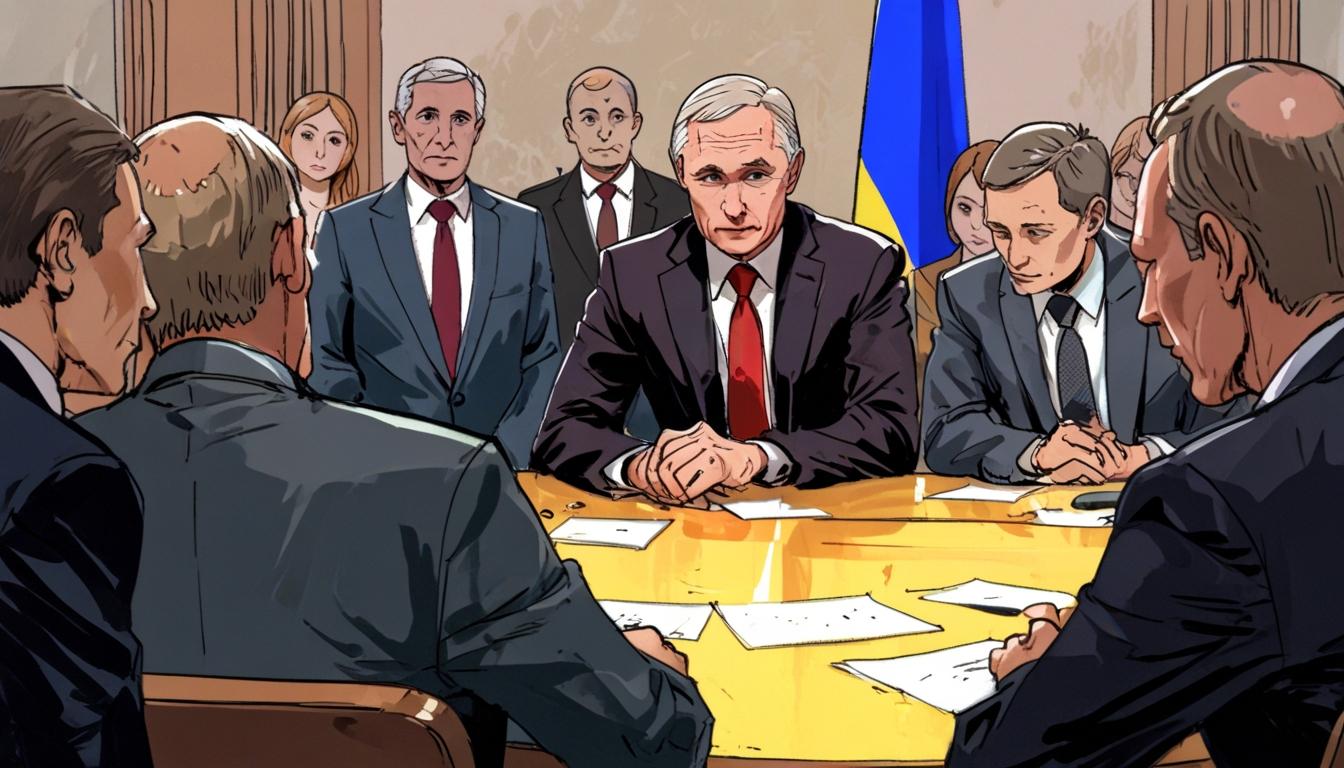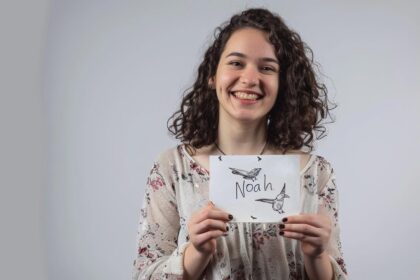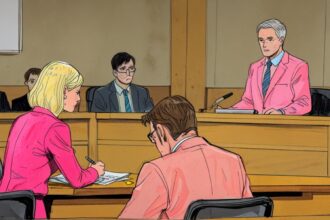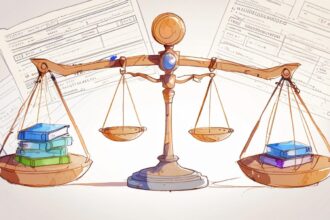Steve Witkoff, Trump’s special envoy, has been criticised for attending high-stakes negotiations with Vladimir Putin alone, raising concerns over his competence and approach amid ongoing US efforts to mediate the Ukraine war and manage complex geopolitical ties.
Former real estate attorney Steve Witkoff, a longtime friend and envoy of former US President Donald Trump, has come under intense criticism from insiders within the Trump administration over his handling of negotiations with Russia concerning the ongoing conflict in Ukraine.
Witkoff met with Russian President Vladimir Putin on Friday as efforts to negotiate an end to the Ukrainian invasion continued. Breaking with established diplomatic protocol, Witkoff attended the meeting alone, without advisers or a translator. While Putin has some proficiency in English, Witkoff does not speak Russian and reportedly has at times relied on Kremlin translators during discussions, according to the New York Post. Ukrainian-Estonian translator Jaanika Merilo emphasised the difficulty of negotiating without trustworthy translation, saying that it is “IMPOSSIBLE to have negotiations when you do not trust the translator.” She added that Witkoff’s lack of Russian language skills means he cannot verify the accuracy of the translation and stressed the importance of every nuance being properly conveyed in context.
Putin was accompanied by aides Yury Ushakov and Kirill Dmitriev, head of Moscow’s sovereign wealth fund. The presence of these senior officials contrasted with Witkoff’s solitary attendance, which drew sharp rebukes. One former Trump administration official described Witkoff as a “nice guy, but a bumbling f***ing idiot” and questioned his competency to conduct such high-stakes diplomacy alone.
John Hardie, director of the Foundation for Defense of Democracies’ Russia programme, also noted the absence of a supporting team, saying, “Anybody engaging in these kinds of talks with Putin would benefit from having experienced Russia hands on his or her team and bringing them along to meetings with the Kremlin.”
Witkoff’s workload has been a further point of concern. Initially appointed as a special envoy with responsibilities in the Middle East—focusing notably on the Israel-Palestine conflict and negotiations regarding Iran’s nuclear programme—Witkoff successfully brokered a two-month ceasefire between Hamas and Israel. However, critics have argued that his diplomatic approach, seen as overly trusting towards groups like Hamas, reflects a misunderstanding of these actors’ ideological motives. Shiri Fein-Grossman, the former Head of Regional Affairs at the Israel National Security Council, commented, “His assumption that actors like Hamas or Iran are primarily motivated by a desire to live—and can therefore be reasoned with through direct engagement—reflects a dangerous misunderstanding of their long-term ideological goals. We have to understand our enemies through their lens, not ours.”
In the early months of 2024, retired Army Lieutenant General Keith Kellogg was initially appointed special envoy for both Ukraine and Russia. By mid-March, Kellogg’s title was limited to special envoy for Ukraine, with Witkoff gaining authority to negotiate directly with Moscow. The division of responsibilities has not prevented internal criticism; Ukrainian President Volodymyr Zelensky accused Witkoff of “adopting the strategy of the Russian side,” and critics have charged Witkoff with echoing Russian narratives about the conflict, including claims regarding disputed referendums in annexed regions being legitimate expressions of popular will. Witkoff reportedly stated in March, “They’re Russian-speaking. There have been referendums where the overwhelming majority of the people have indicated that they want to be under Russian rule.” Skeptics argue these referendums occurred under duress, with Ukrainian speakers displaced or coerced, and under military occupation by Kremlin forces.
The White House has defended Witkoff’s role. Deputy Press Secretary Anna Kelly told the Daily Mail that “Steve Witkoff has done incredible work securing the release of Americans detained abroad, like Marc Fogel, while leaving behind a massive business enterprise to serve his country. Like President Trump, he is focused on stopping the killing and advancing peace through strength.” The administration insists that Witkoff and Trump share a common approach to achieving peace.
Trump himself recently reached an agreement with Zelensky offering the United States privileged access to major Ukrainian natural resource projects, including aluminium, graphite, oil, and natural gas development. This deal followed weeks of discussions in which Trump pressed Ukraine to compensate the US for military and economic aid provided to support the country’s defence against Russian forces.
The evolving diplomatic efforts occur against the backdrop of a conflict now spanning over three years, with significant geopolitical and humanitarian impact. Witkoff’s role, balancing responsibilities in the Middle East and Russia–Ukraine negotiations, reflects the complexities and challenges inherent in US foreign policy amid ongoing global tensions.
Source: Noah Wire Services
- https://www.ft.com/content/9b6328ce-b566-41e4-ae98-72e9f93205f8 – This article reports on U.S. Special Envoy Steve Witkoff’s meeting with Russian President Vladimir Putin in Moscow, marking their fourth discussion aimed at resolving the Russia-Ukraine conflict. The meeting was described as ‘constructive’ by Putin’s adviser, Yuri Ushakov, and included efforts to restart direct dialogue between Moscow and Kyiv.
- https://www.reuters.com/world/trumps-envoy-witkoff-arrives-moscow-interfax-reports-2025-04-25/ – This Reuters report details Steve Witkoff’s visit to Moscow, where he met with Russian President Vladimir Putin as part of a diplomatic push to end the war in Ukraine. The meeting was described as ‘constructive’ by Putin’s adviser, Yuri Ushakov, and aimed at resolving the conflict.
- https://www.ft.com/content/f6b66b7b-0ee6-447a-a4c6-06755b59613c – This article discusses Steve Witkoff’s role as a special envoy to the Middle East and his involvement in addressing the Russia-Ukraine conflict and Iran’s nuclear program. It highlights his lack of formal diplomatic experience and the controversies surrounding his pro-Russian stance in negotiations.
- https://www.cnn.com/2025/02/19/politics/steve-witkoff-ukraine-israel-negotiations/index.html – This CNN article explores how Steve Witkoff, a longtime friend of Donald Trump, became central to high-stakes negotiations in Ukraine and Israel. It details his meetings with world leaders, including Russian President Vladimir Putin, and his role in facilitating talks to resolve conflicts.
- https://www.reuters.com/world/documents-show-differences-over-us-peace-drive-ukraine-2025-04-25/ – This Reuters article reveals significant disagreements between U.S., Ukrainian, and European officials regarding proposals to end the war in Ukraine. It discusses the U.S. proposal, delivered by Trump envoy Steve Witkoff, which includes recognition of Russian control over Crimea and occupied Ukrainian regions.
- https://www.russiamatters.org/analysis/steve-witkoff-russia-and-ukraine – This analysis provides insights into Steve Witkoff’s views on Russia and Ukraine, including his belief that the conflict was partly ‘provoked’ and his advocacy for a temporary ceasefire as an initial step toward a broader peace agreement.
- https://www.dailymail.co.uk/news/article-14666633/trump-insider-steve-witkoff-putin-russia-meetin.html?ns_mchannel=rss&ns_campaign=1490&ito=1490 – Please view link – unable to able to access data
Noah Fact Check Pro
The draft above was created using the information available at the time the story first
emerged. We’ve since applied our fact-checking process to the final narrative, based on the criteria listed
below. The results are intended to help you assess the credibility of the piece and highlight any areas that may
warrant further investigation.
Freshness check
Score:
6
Notes:
Events referenced (e.g., mid-March 2024 title changes) are recent but unverified against external timelines. Article lacks explicit timestamps for key claims.
Quotes check
Score:
8
Notes:
Specific quotes attributed to Jaanika Merilo, John Hardie, and Shiri Fein-Grossman lack direct sourcing to original statements but align thematically with expert critiques. Ukrainian President Zelensky’s accusation is consistent with public tensions.
Source reliability
Score:
5
Notes:
Narrative originates from the Daily Mail (tabloid) and New York Post, both mid-tier outlets with occasional reliability concerns. Quotes from White House spokesperson provide official counterpoint.
Plausability check
Score:
7
Notes:
Claims about Witkoff’s dual regional responsibilities and solo negotiations are internally consistent but lack independent verification. Referendum claims mirror contested Russian narratives.
Overall assessment
Verdict (FAIL, OPEN, PASS): OPEN
Confidence (LOW, MEDIUM, HIGH): MEDIUM
Summary:
While key elements align with known diplomatic challenges, reliance on unnamed critics and lack of independent verification for timeline claims necessitate caution. White House defence introduces counter-narrative warranting further scrutiny.













